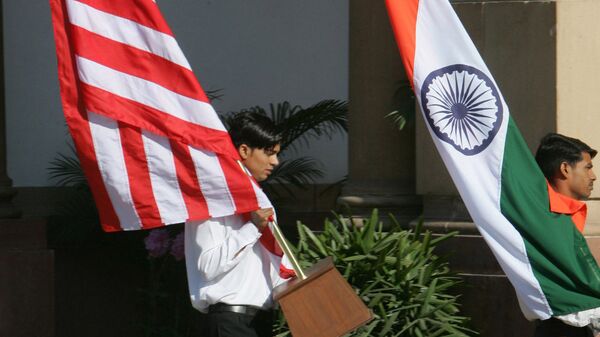Viewed in the context of the US-India bilateral discourse, Washington must set aside its scepticism about India's multilateral outreach, Jaiveer Shergill, a lawyer-cum-analyst, said in an article published in Indian daily The Hindu on Thursday.
Maintaining that India is at a crossroads regarding its approach to foreign policy, Shergill said New Delhi needs to crucially decide whether it wants to "continue with its time-tested stable policy of non-alignment and strategic autonomy", or "adopt a strategy of "multi-alignment and transactional autonomy".
The India-US relationship, in particular, "requires a serious relook" because of the several irritants that plague it, notable among them, the delay in signing a trade deal with the US and the warm ties between Washington and Islamabad, he further states.
Cautioning that the "global order is now dipping into a vortex of disruptions largely caused by the United States, China and Brexit", the lawyer-cum-analyst says that global contradictions and challenges notwithstanding, "a number of opportunities in the new world order await India".
"Using their convergence of perception on many issues, India and the US can work closely in reshaping the global order and bilateral ties," he adds.
"Mr Trump (US President Donald Trump) needs to realise that India at this juncture cannot afford to get derailed from the tracks of globalisation, regional alliances, trade opportunities…," Shergill said.
"India, on the other hand, needs to make sure that its bilateral ties with the US "survive the axe of unilateralism without sacrificing India's 'sweet spot' and the label of being 'everyone's friend'," he states.
Listing three critical points of concern in the India-US relationship, Shergill says one of them is the possibility of the US suddenly moving out of war-ravaged Afghanistan, "which could lead to a complete takeover by the Taliban, with potential repercussions on India's northern front".
Second is the fact that, in New Delhi, there has always been a "fog of uncertainty over Washington's stated policy," on Pakistan, primarily created through "confused signalling from the official 'advisers' of the White House".
The third is the contradictory relationship that the US has had with Iran in recent times. About four years ago, Washington and Tehran were close enough to ink a landmark nuclear deal.
A change in the White House resulted in the US unilaterally withdrawing from the pact in 2018. Now Washington has taken the sanctions route to corner Tehran or any other country taking oil from Iran. Such a track record offers no guarantees for India, opines Shergill.
The US, also expecting India to alter or end its long-term friendship with Russia is unrealistic, for the simple reason that it was Washington that again unilaterally withdrew from the Intermediate-Range Nuclear Forces Treaty signed with Russia in 1987.
Then, it appeared that the US was looking to deploy more missiles in Asia, leading to alarming talk about the start of another arms race.
"India cannot afford to get dragged into this, and must focus on multi-alignment both with the US and Russia especially in terms of getting a waiver under the Countering America's Adversaries Through Sanctions Act (CAATSA), in purchasing the S-400 missile system from Russia," Shergill says.
There are also differences between the US and India concerning China in terms of Indo-Pacific strategy.
Both Washington and New Delhi need to take Chinese "assertiveness and cautious pragmatism" on board when making decisions related to their partnership.
"Global politics is changing at a fast pace...India-US ties have shades of the good, the bad and the ugly... before taking any decision on the future trajectory of India-US dynamics, the Indian establishment must remain mindful of the unpredictability and inherent contradictions in US foreign policy, and, at the same time, capitalise on US isolationism and retrenchment' by maintaining its time-tested policy of 'non-alignment and strategic autonomy,'" Shergill concludes.



